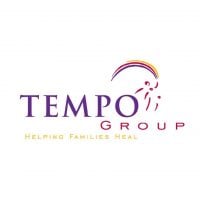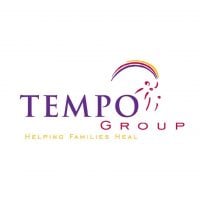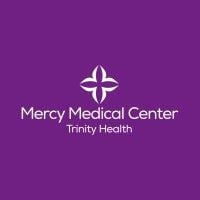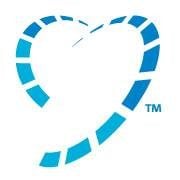South Nassau Communities Hospital - Inpatient
Drug Rehab Center in Oceanside, New York
- Mental Health
- Dual Diagnosis
South Nassau Communities Hospital in New York specializes in providing comprehensive and varied treatments and therapies, including electroconvulsive therapy, to individuals with mental health issues and dual diagnosis, with a commitment to helping patients recover and improve their quality of life in a safe and supportive environment.
About South Nassau Communities Hospital - Inpatient in New York
South Nassau Communities Hospital in Oceanside, New York is an inpatient facility that specializes in treating clients with dual diagnosis and mental health issues. The center provides a wide variety of treatments and therapies to ensure the best possible care for their patients. These services include family therapy, group therapy, trauma therapy, individual therapy, nutrition therapy, experiential therapy, nicotine replacement therapy, and electroconvulsive therapy. The facility also works with insurance providers to ensure that those who need treatment are able to get the help they need.
South Nassau Communities Hospital strives to provide the most comprehensive approach to treatment for those with mental health issues and dual diagnosis. They are committed to helping their patients reach recovery and improve their quality of life. The hospital offers 24/7 crisis management for those in need and has multiple health care professionals available to ensure the best care for their clients. This inpatient facility offers a safe and supportive environment for its patients and their families.
Genders
Ages
Modality
Additional
Conditions and Issues Treated
Dual-Diagnosis
When someone in struggles with both addiction and mental or emotional illness, this is considered a dual diagnosis. Dual diagnosis treatment can include therapy for these issues to happen simultaneously, which will allow either of them to be treated effectively.
Sometimes people who have suffered from addiction disorder also suffer from co-occurring disorders such as depression, anxiety, bipolar disorder, etc., making them “dual diagnoses.” Dual diagnoses require specialized treatment programs where drug and alcohol addiction are addressed along with psychiatric illnesses. Some rehabilitation facilities provide patients suffering from cooccurrences a program with highly integrated services and a clean environment with few distractions to help them succeed.
Dual Diagnosis (Co-Occuring Disorders), Mental Health
Levels of Care Offered
This center offers a variety of custom treatment tailored to individual recovery. Currently available are Dual-Diagnosis, Inpatient, with additional therapies available as listed below.
Inpatient Treatment Program
Inpatient treatment for alcoholism or drug addiction is an option that provides the addict with a supportive environment in which they can stop using. After detox, an inpatient treatment center provides a structured environment for the addict to recover from their addiction and begin taking steps toward a lifetime of sobriety.
This type of treatment is appropriate for addicts that are most in need of intensive care and supervision. This includes those who were unable to quit on their own, those who need more structure than they can get in outpatient treatment, and those whose addiction has led them into legal trouble or severe health problems.
Therapies & Programs
Individual Therapy
Because no single treatment is effective for all addicts, the goal of treatment and therapy should be to figure out what works best for each individual. Tolerance and withdrawal levels differ from person to person, affecting the treatment intensity required. Addiction treatment should aim to help addicts develop healthy coping mechanisms for dealing with their addiction and its underlying causes.
Family Counseling
Family therapy is beneficial for people who are in addiction treatment services because it offers addicts the opportunity to work with their family members to better understand what led them to make choices that contributed to their addiction.
This type of therapy helps family members reach a deeper understanding of how they can best support their loved one during recovery. It also helps the addict better understand their own motivations and triggers that led them to turn to substance abuse.
Family therapy can help addicts in the following ways:
- Assists family members in processing difficult feelings so they don’t blame or resent recovering addicts
- Assists family members in understanding how addiction has impacted the addict and everyone who is involved with them
- Allows the addict to take responsibility for their actions, while encouraging improved communication skills
- Helps family members understand how to best support an individual in recovery so addicts don’t relapse again.
Group therapy can help build a stronger support system and give addicts in Oceanside, NY insight into their addiction that they gain through shared conversations. Group therapy occurs in a controlled group environment, exclusive of one on one meetings. This makes it safer for patients to feel comfortable sharing the struggles they’re going through and gaining perspective.
Trauma therapy is beneficial for people who are recovering from drug addiction because it helps them heal from past traumas that may have caused them to turn to harmful substances or led them to experience negative emotions that contributed to their destructive behaviors.
This type of treatment works by processing difficult experiences so individuals can learn how to process these events without having to turn to substances for coping.
Trauma therapy can help addicts in the following ways:
- Helps individuals understand their experiences and emotional responses to difficult events, including why they turned to drugs or alcohol
- Provides them with comfort and support while working through difficult emotions related to these traumatic experiences
- Offers an opportunity for addicts to have a voice and be heard, which can improve their self-esteem
- Can help them develop coping skills so they can better respond to triggers instead of turning to substance abuse.
It’s important to remember that malnutrition can affect your mood and energy level, which affects your desire to get sober. Good nutrition helps keep your body strong against the familiar ravages of drug use–tuberculosis, hepatitis, abscesses, infections, etc. — as well as the physical symptoms of withdrawal. If you’re eating right, you’ll have more energy for productive activities and will have more strength to fight cravings.
Electroconvulsive Therapy, Experiential Therapy, Family Therapy, Group Therapy, Individual Therapy, Nicotine Replacement Therapy (NRT), Nutrition Therapy, Trauma Therapy
Patient Experience
Experiential Therapy at South Nassau Communities Hospital - Inpatient
Experiential therapy uses engaging activities to help patients access deeper, often hidden emotions. For example, the patient could role-play a problematic situation or engage in activities like drawing, painting, poetry writing, music composition, exercising, or journaling to help process intense feelings.
Experiential therapy is a type of therapeutic approach that focuses on having patients work through problems, issues, or emotions by engaging directly in some real experience. Experiential therapy occurs face-to-face with a therapist who helps these people to explore their feelings first hand.
It is based on the belief that to truly understand and gain insight into oneself and behavior; it is necessary and helpful to have real experiences with the issues involved. Some therapists have developed the experiential therapy approach as a way of treating addictive behaviors or dealing with impulses related to addiction. It comes from an existential school of psychotherapy called ‘experiential existential.’
Payment Options Accepted
For specific insurance or payment methods please contact us.
Is your insurance accepted?
Ask an expert, call (888) 674-0062
Additional Details
Specifics, location, and helpful extra information.
Oceanside, New York 11572 Phone Number(516) 632-3937 Meta DetailsUpdated November 25, 2023
Staff Verified
South Nassau Communities Hospital - Inpatient Patient Reviews
There are no reviews yet. Be the first one to write one.
Oceanside, New York Addiction Information
More than 2 million New Yorkers are currently suffering from some type of substance abuse and many of those are minors. Alcohol abuse, in particular, is prevalent among those underage. As a result of the high prices and regulation of prescription drugs, many New Yorkers turn to heroin instead. This has led to a serious heroin epidemic in the state.
Treatment in Nearby Cities
- Port Jervis, NY (74.7 mi.)
- Long Island City, NY (17.9 mi.)
- Garrison, NY (53.0 mi.)
- Seaford, NY (7.6 mi.)
- Granville, NY (191.6 mi.)
Centers near South Nassau Communities Hospital - Inpatient

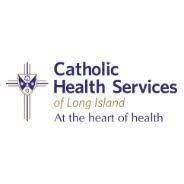
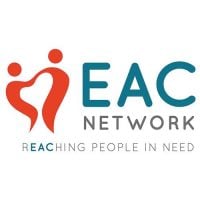
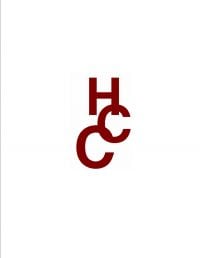
The facility name, logo and brand are the property and registered trademarks of South Nassau Communities Hospital - Inpatient, and are being used for identification and informational purposes only. Use of these names, logos and brands shall not imply endorsement. RehabNow.org is not affiliated with or sponsored by South Nassau Communities Hospital - Inpatient.


